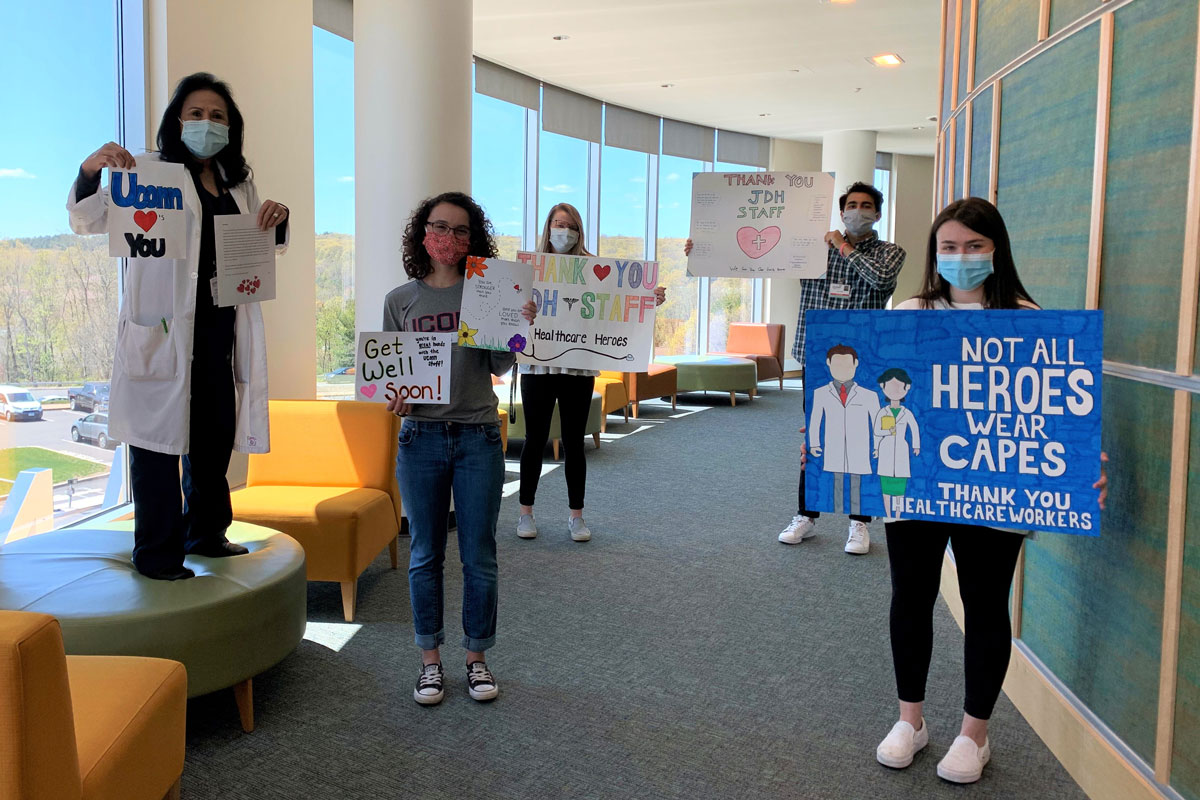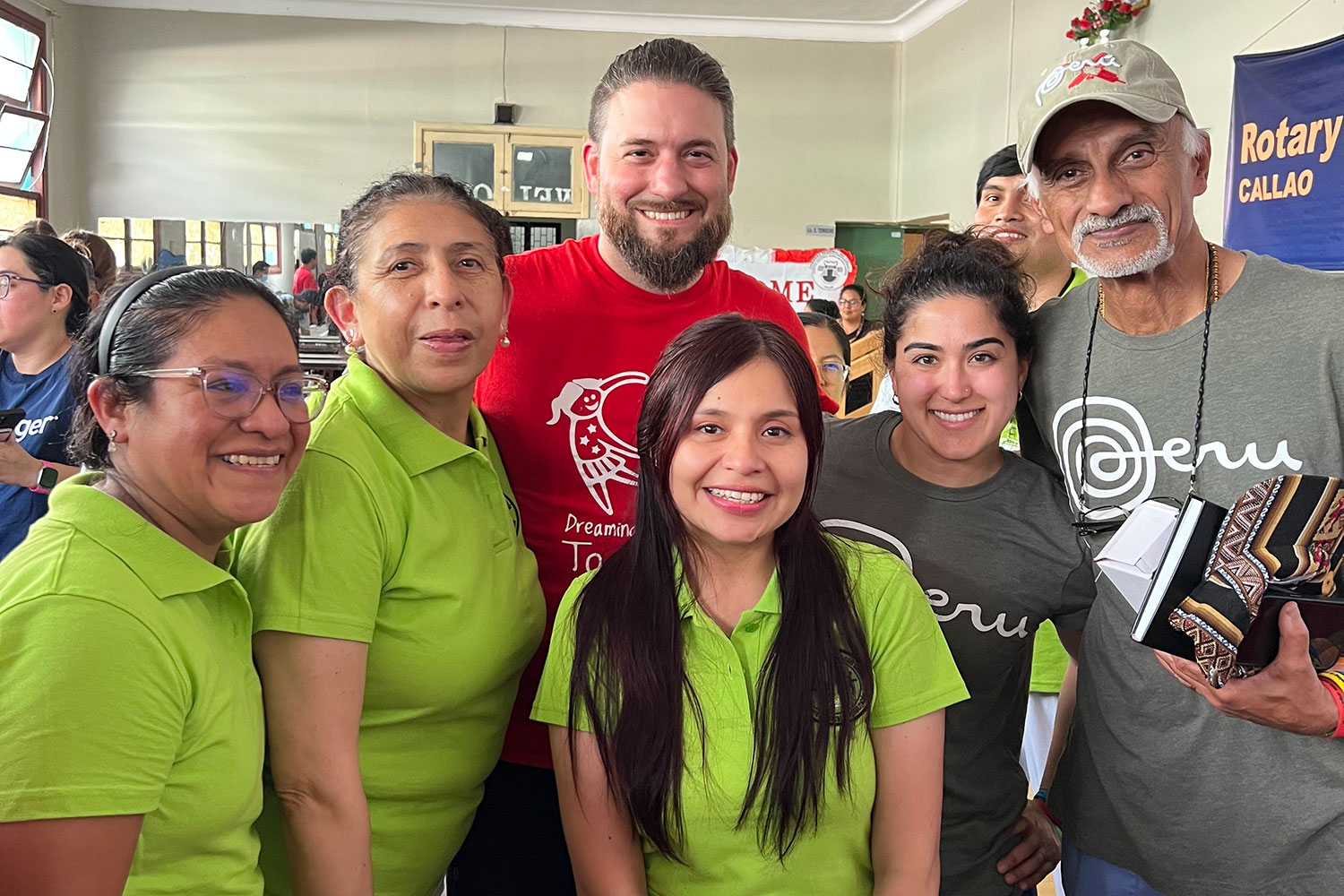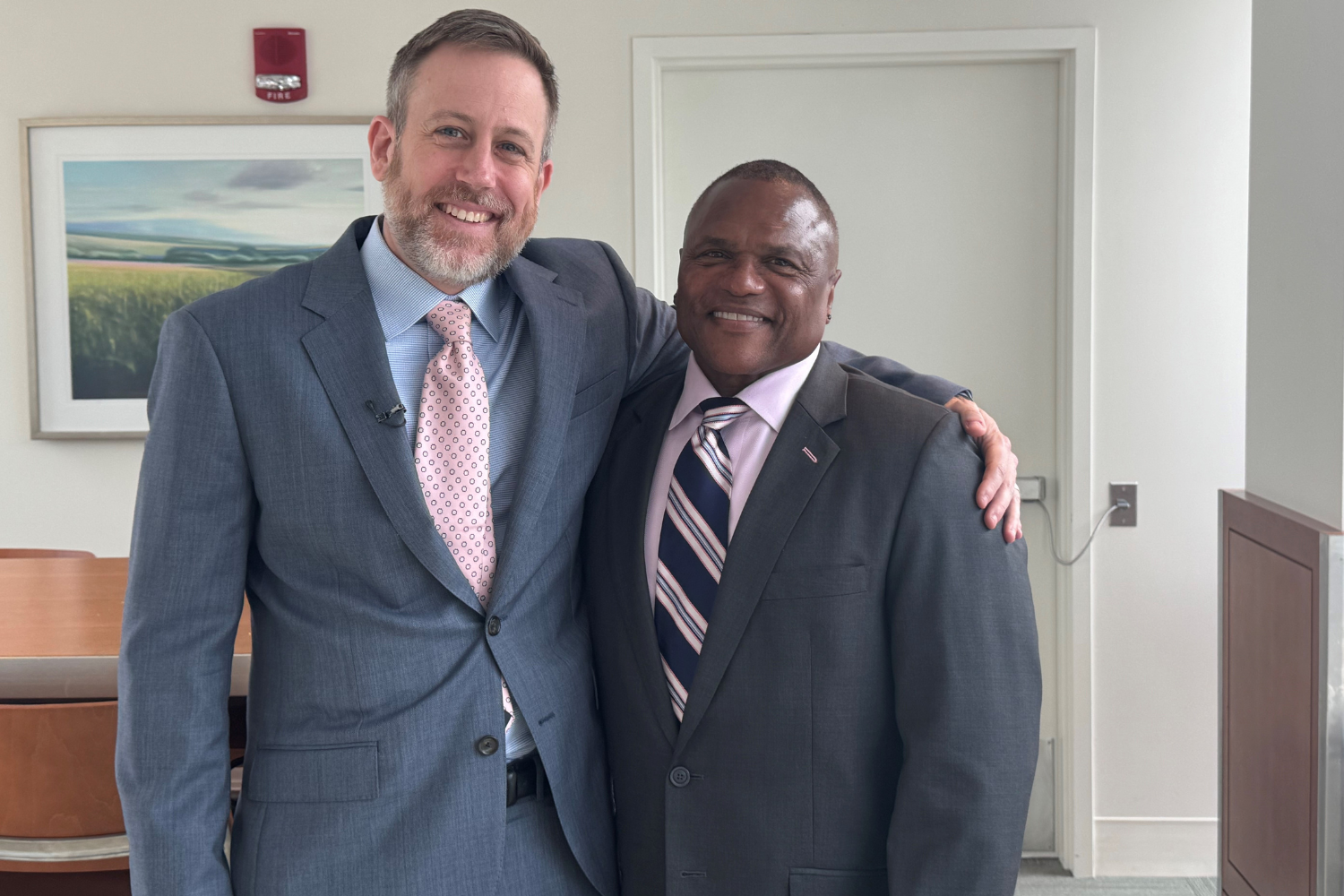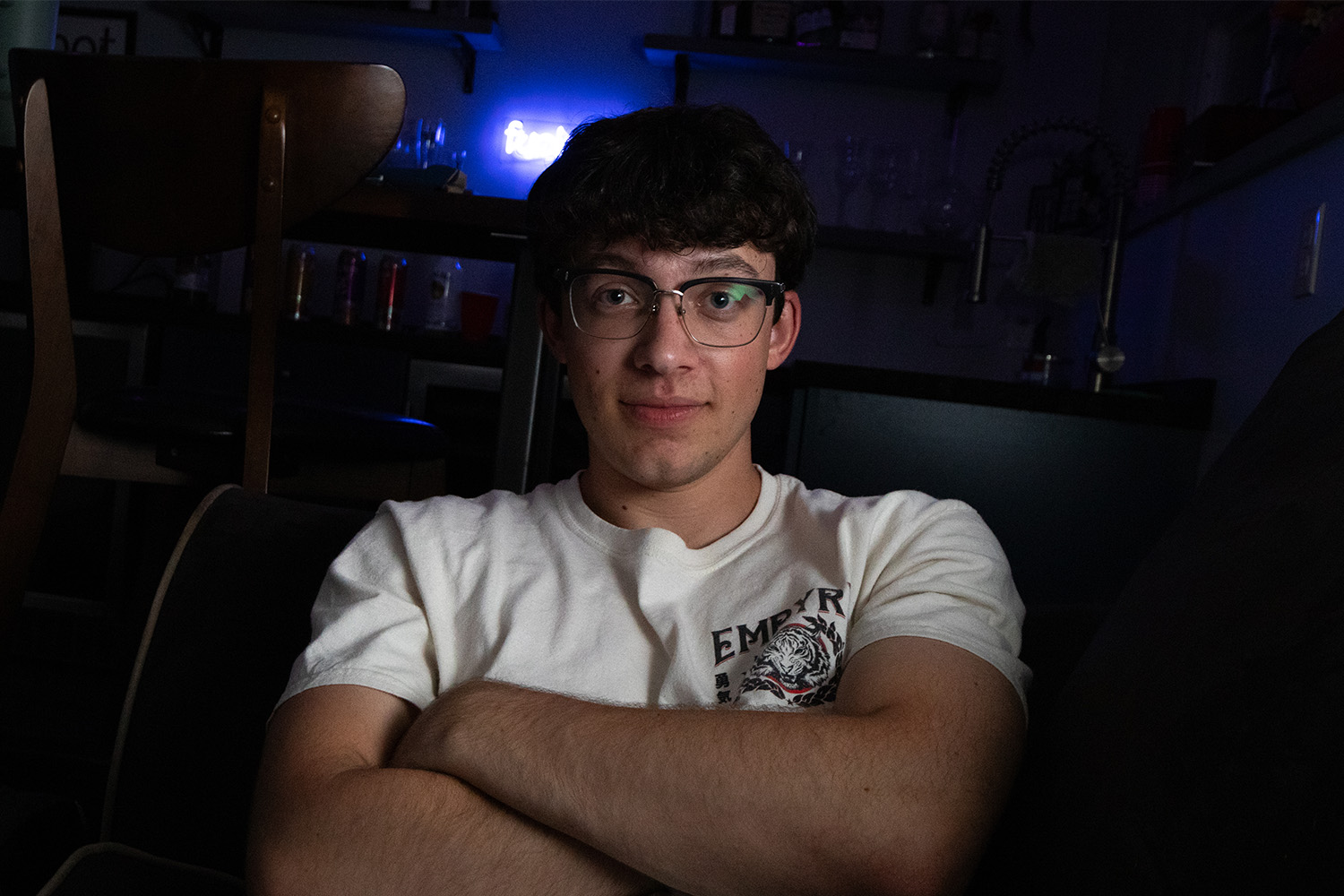When older adults are hospitalized, having someone in the room with whom to talk, reminisce, play cards, or listen to music can go a long way toward improving their hospital experience and state of mind.
Recognizing this, UConn Health’s Nurses Improving Care for our Health system Elders (NICHE) program is working with UConn Allied Health Sciences students to provide that needed companionship.
“In an unfamiliar hospital environment, older adult patients are at high risk to be anxious, disoriented, depressed, overwhelmed with medical illness, and to develop delirium,” says NICHE coordinator Rachel Meehan.
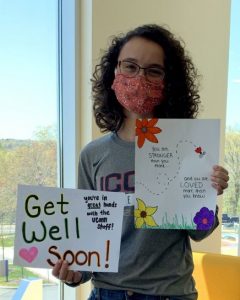
She trains the students, and, in normal times, the students visit patients. It’s called the Purposeful Visitor Program, and it has brought companionship to older adult inpatients in the UConn John Dempsey Hospital since 2018. That is, until mid-March, when the hospital had to restrict visitation to reduce the spread of COVID-19.
While some patients can use video conferencing technology to interact with others and deal with the loneliness, it’s not an option for everyone. So the students came up with a way to help these patients feel connected.
“The students created an online form where they write messages that can be printed out and given to hospitalized patients they would normally visit,” Meehan says. “They also created posters thanking the UConn staff for all they do.”
Last week, four of the students delivered the posters for the providers and letters for the patients.
“We knew it was important to figure out a way to provide these patients with some form of social interaction, so they are reassured that they are not alone while in the hospital,” says Abby Leander ’22 (CAHNR). “This system prevents any risk of exposure to patients or staff and still allows us to engage with patients despite visitor restrictions. Even though we will not be there physically to visit, our wish is that these letters can at least provide patients with a feeling of hope and encouragement during difficult times.”
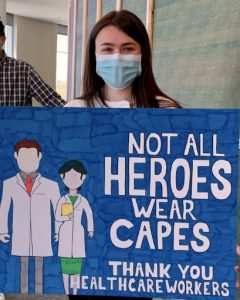
Leander has been a purposeful visitor for the last two semesters. Julia Abbasi ’20 (CAHNR) started volunteering in January.
“I’ve learned the importance of keeping the geriatric population socially connected before and during this pandemic,” Abbasi says. “The ideas Abby and I came up with will hopefully put smiles on the faces of patients who may have felt forgotten. We’re hoping that the bright colors of our posters and letters can shine some hope throughout the hospital, as we are unable to make social contact in person.”
In a typical semester, eight to 10 students participate in the Purposeful Visitor Program, and they normally spend four to six hours per week interacting with older adult hospitalized patients.
